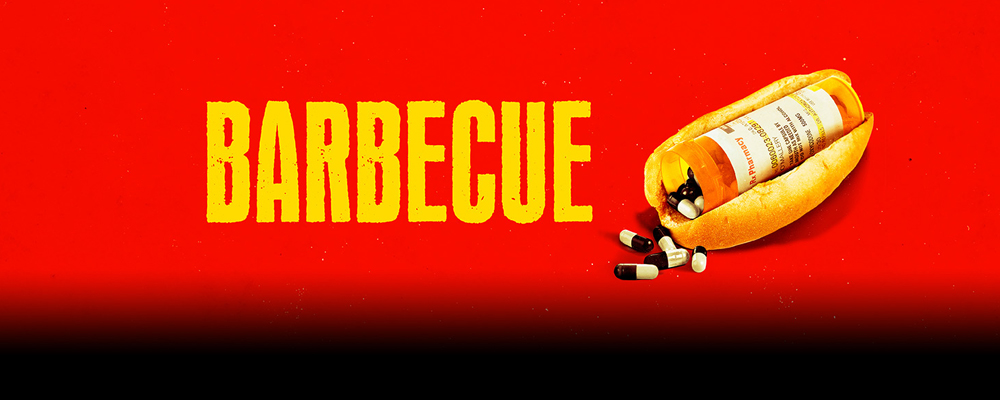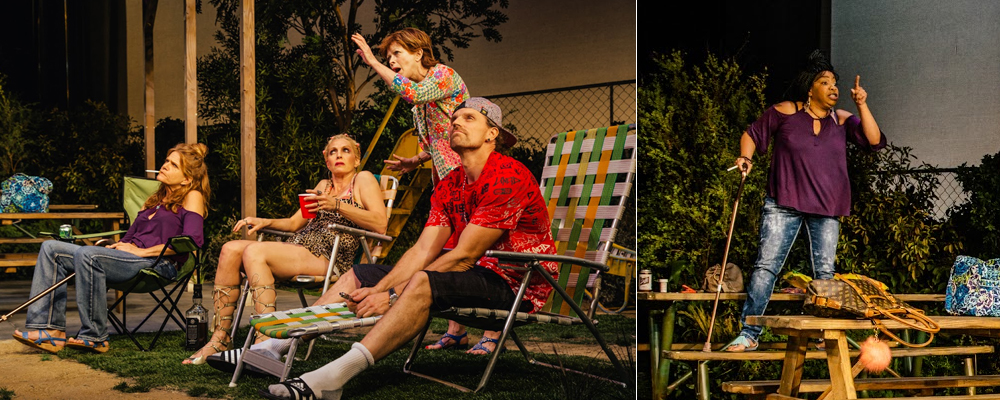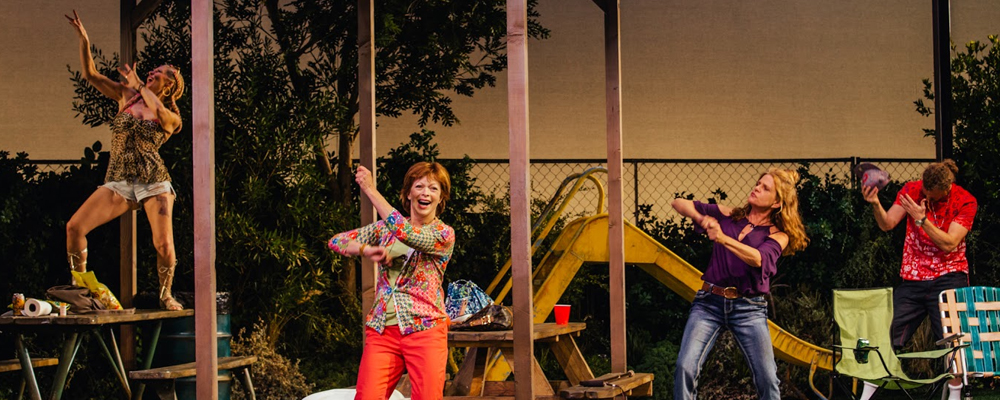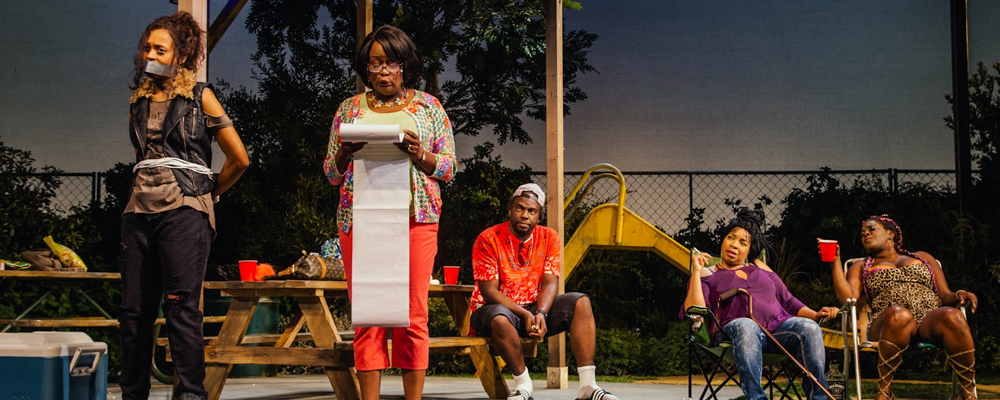Robert O’Hara’s ‘Barbecue’ Challenges Audience’s Perception of Race
Patrick Regan
The importance of Robert O’Hara’s “Barbecue” isn’t immediately apparent until midway into the first act. A family attempts to stage an intervention for an addicted family member, trying and often failing to push past dynamics that have been set in stone for generations, as this is a family that can only be held together with drama and arguing.
Then the lights go out. When they come back up, we’re with the family again, still arguing over whether or not it’s worth the effort to have an intervention. Only instead of act one’s vaguely Southern white family, we find a black family with the same names and same problems, having the same argument. Back and forth, the races of the cast switch, but the characters are unmistakably the same, down to costumes and mannerisms.
This switcheroo forces the audience to consider how they viewed the same characters when the races are swapped. The barrier between the two versions of the family is made even fuzzier in the second act when White Barbara, having cleaned up her act years later, meets with the actress who played Black Barbara. Only this time, Black Barbara is a movie star who wants to play White Barbara in a movie about her.
It’s this moment in the second act that should be particularly relevant to Los Angeles viewers, now that “Barbecue” is coming to the Geffen Playhouse. The second act takes some of the subtext set up in the first and addresses it directly, while also directly addressing Hollywood’s inconsistent history producing material for actors of color.
For all its surreal, fourth-wall breaching stage craft, “Barbecue” is ultimately a grounded story. A story about family, about addiction, and about perception and lies. Much like Los Angeles and Hollywood, all the imagery conceals a solid truth at the center. You just have to peer through to find it.
“Barbecue” runs at the Geffen Playhouse from Sept. 6 to Oct. 16.




